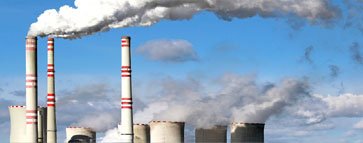Mercury in the Midwest
August 20-21, 2015
Hyatt Regency Indianapolis
Indianapolis, IN
Meeting Objective: Bring together policy makers and researchers for a broad-based review of Midwest mercury issues. The latest mercury measurements from the LADCO states will be presented and put into regional, national, and global perspective.
August 20
Welcome, introductions, meeting logistics (Rob Kaleel, LADCO; Thomas Easterly, IDEM)
Keynote 1. Mercury inputs, cycling, and trophic transfer in the environment. Charles Driscoll, Syracuse University
Status of mercury monitoring in the Midwest: Where do we monitor, what do we monitor for, who pays for the network. David Gay, NADP
Midwest mercury network design and first year of data, contrasted with earlier summary data. Martin Risch, USGS.
Reconciling model results with observed trends in mercury: the importance of updated emissions inventories. Hannah Horowitz, Harvard University
Mercury measurements and quality assurance. Robert Brunette, Frontier Geosciences
Spatial and temporal trends in mercury concentrations in Laurentian Great Lakes fish: Are global or regional mercury sources affecting the Great Lakes ecosystem. Thomas Holsen, Clarkson University
Watershed retention of atmospherically-deposited mercury in Michigan: implications for recovery of lakes from mercury pollution. Paul Drevnick, University of Michigan
Assessing spatial and temporal long term trends in mercury deposition in the US from MDN data: Using the Mid-West as a case study. Arnout ter Schure, EPRI
Speciation measurements : Wisconsin QA study and what we know about AMNet data quality. Mark Olson, NADP.
Estimation of mercury emissions from forest fires, lakes, regional and local sources using measurements in Milwaukee and an inverse method. Benjamin de Foy, St. Louis University
Using Tekran data to determine potential source influences in the Midwest. Donna Kenski, LADCO
Application of monitored speciated mercury data. Leiming Zhang, Environment Canada.
August 21
Keynote 2: From Large-Scales and Long-Timeframes to Micro-Scales and Short-Timeframes: Environmental Research and the Need to Continue the Push Forward. David Krabbenhoft, USGS
State perspective and mercury monitoring experience. Mark Allen, Wisconsin DNR
Ohio River Valley Water Sanitation Commission’s role in clean water and mercury. Jason Heath, ORSANCO
Electric utility perspective on mercury emission reductions and environmental fate. Robin Reash, AEP
Group discussion focused on network funding, monitoring challenges, meeting wrap-up. Focus on developing points for a letter to EPA on mercury-related needs. Moderated by Martin Risch, USGS



